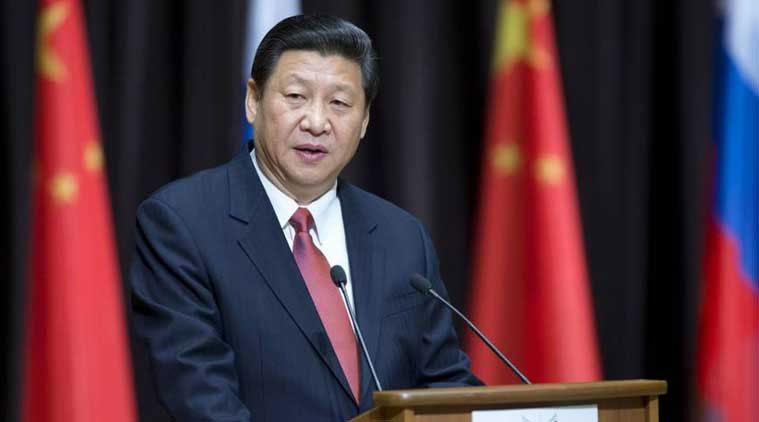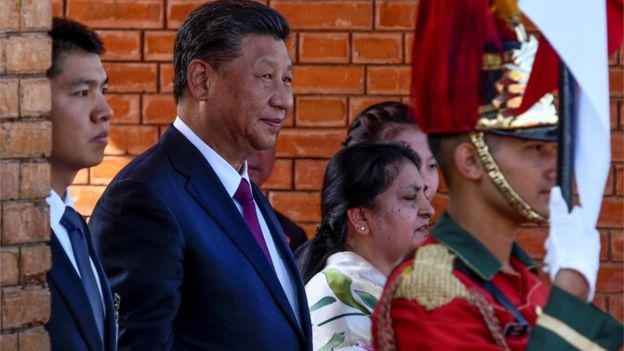
China’s president has issued a warning against dissent, saying any attempt to divide China will end in “bodies smashed and bones ground to powder”.
Xi Jinping’s comments came during a state visit to Nepal on Sunday, Chinese state broadcaster CCTV said.
He didn’t mention any particular region but it was seen as a warning to Hong Kong, where anti-Beijing protests have been ongoing for months.
Peaceful rallies in Hong Kong again descended into clashes on Sunday.
Public transport stations and shops deemed to be pro-Beijing were damaged.
What did Xi Jinping say?
“Anyone who attempts to split any region from China will perish, with their bodies smashed and bones ground to powder,” Mr Xi said, according to a foreign ministry statement issued on Sunday.
 Image copyrightREUTERS
Image copyrightREUTERS“Any external forces that support the splitting of China can only be regarded as delusional by the Chinese people,” he said.
Since the start of the Hong Kong protest movement four months ago, China has blamed “external forces” for fuelling the unrest, and accused the US and UK of interfering in Chinese domestic affairs.
Why are his comments notable?
Xi Jinping has yet to make any direct comment on the ongoing protests in Hong Kong, so this will be seen as a rare and strong warning.
Beijing has so far said it believes Hong Kong’s police force is capable of handling the crisis. But protesters fear Beijing could send in troops to end the violence on the streets.
This is widely seen as an unlikely scenario because of the serious consequences. Few observers believe China would repeat its 1989 crackdown on pro-democracy activists in Tiananmen Square in Beijing, for examples where hundreds are believed to have died.
Source: BBC

